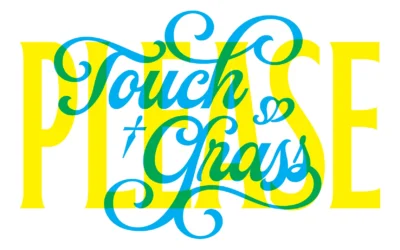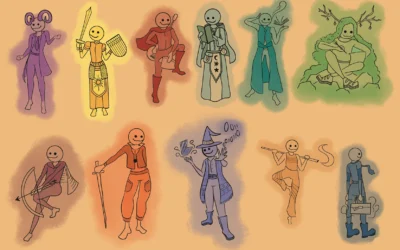It’s been a very busy couple of years for Elisia Snyder, who graduated from MacEwan University in 2016 as the first Creative English Honours student from the Department of Arts and Sciences. Since then, she has travelled to Thetford Mines, Quebec to teach English as a Second Language at Cégep de Thetford, returned to Edmonton to complete a Master of Arts in English at the University of Alberta (U of A) in 2017, and entered a term position as a technical writer for the Faculty of Engineering in the Civil and Environmental Engineering Department in February this year, also at the U of A.
In addition to her education and work, Snyder also has claim to the title of published poet — you may recall seeing one of her poems on Edmonton Transit buses for the Edmonton Poetry Festival’s Poetry Moves on Transit program last spring — as well as standup comedian. Snyder has been cracking jokes and emceeing standup events since 2017.
Come the Fall 2019 term, she will add one more title to this impressive list of credentials: sessional instructor in the Department of English in the Faculty of Arts and Sciences at MacEwan. She will be responsible for one section of ENGL 102 – Argument and Analysis.

For Snyder, the opportunity to create and deliver her own curriculum within the parameters of the course presents an exciting chance to integrate her various passions with education and share them with her students, but it is not her first time teaching. In addition to her work at Cégep de Thetford, Snyder has also been a tutor for Student Accessibility and Disability Services at both MacEwan and the U of A, respectively. Similarly, her completion of a creative thesis in 2015 marked the beginning of a new route for English Honours students at MacEwan. Though Snyder insists her role in the expansion of the Honours program was minor, simply asking the question “Can I do this?” and coordinating with faculty has nonetheless helped pave the way for other students to pursue creative thesis writing.
When asked why she chose to come back to MacEwan as a sessional instructor, Snyder admitted her decision was partially motivated by practicality — there was, after all, an opening — but that the real reason was love.
“I really love Edmonton. I love living in Edmonton, and I’ve tried living in other cities. I came back (from Quebec) because there was a scholarship opportunity to do my Master’s, and I’ve stayed for the opportunities that keep coming,” she says. “Edmonton has been gracious to me and MacEwan has been very gracious to me. It’s really difficult for a lot of post-graduates to find work in this field without moving and I’ve been very lucky and very blessed to be awarded this position.”

Starting a new job of any kind is always a nerve-wracking experience, even if it is an exciting one, but Snyder says that support for her has been excellent and that “it’s already been welcoming.” Even Snyder’s interview for the position had the unique quality of being “a really friendly” experience, she says, largely because she was a former student and had developed a close relationship with her professors during her undergrad.
“During my interview, it was so nice to see the familiar faces, and it was so nice to just sit down with a group of people who I knew so well.”
This doesn’t mean that going from a student-professor relationship to colleagues is going to be easy, however. As for all students-turned-teachers, Snyder confesses that being on a first-name basis with old professors, especially those with doctorates, might be a little weird at first.
“It is going to be strange and actually, I’m not sure what my students should call me! I don’t hold a doctorate, and I’m not technically a professor. Should I get them to just call me Elisia, or, I dunno, Miss Snyder sounds weird. I made my students in Quebec call me Miss Snyder because it’s an Anglophone thing and that was something they had to get used to.”
Whatever title she ends up going with, it’s clear that Snyder is passionate about her students and has high hopes for their experience in her ENGL 102 class this fall. “I like the idea that I could maybe switch some people over. An English class is a good opportunity for self-examination, and for first-years coming in who maybe haven’t decided on their major or who are open to switching their major to — or from! — English, this course provides a good opportunity to view the world in many ways and see what their interests really are and where they lie. The English program does a really good job of creating well-rounded people who are prepared to overcome adversity, and I’d recommend a (Bachelor of Arts) to everyone because you learn so much about yourself, but career-wise it might not be for everyone.”
Snyder expands on this by saying, “There’s this expectation that lingers for students who attend university that if they go to school, they’re just better off, which is not the case for everyone. Not everyone needs to go to grad school. I hope that in this first-year course I am able to convince some people to examine their true beliefs about what they want out of life.”
Experience is an important factor in shaping these beliefs. For Snyder, it’s also the most valuable thing that you can offer. “Having an extra layer of personality that sticks with people and that provides employable skills has helped me countless times,” she says, crediting her background in standup comedy as part of what led to her being offered the sessional instructor position.
“I was asked in the interview if I felt confident running a classroom by myself and if I felt confident standing up in front of a room of people on my own. In the time that I’ve done standup comedy, I’ve gotten used to that, for sure. I can control a room, and I can control hecklers, so unruly students won’t be an issue for me,” she jokes.
As part of her class, Snyder has worked in a presentation component in order to give her students the opportunity to build some experience and develop their analytical and communication skills.
“I hope that in this first-year course I am able to convince some people to examine their true beliefs about what they want out of life.”
“I feel that part of argument and analysis, part of that rhetorical element is being able to deliver an argument effectively. On paper is just one way of doing it, but out loud is another and slightly more complicated way of delivering an argument. So I’d like for students to have a taste of that.”
Having struggled with public speaking in the past, Snyder admits that this may be a challenge for some of her students.
“People are more scared of public speaking than they are of dying,” she says, adding that she respects her students’ right to that fear and discomfort. At the same time, she hopes to create a welcoming space where her students can practice their skills in front of peers, something that is highly valuable to their education, but also more generally.
In addition to public speaking, Snyder advises that students try to find time for volunteering and building their portfolios.
“Volunteer experience is so valuable,” she emphasizes, “and we have the MacEwan Undergrad Student E-Journal (MUSE). Volunteering as a peer reviewer for that is a really good experience for English majors particularly.”
For those who are keen on pursuing graduate school once they’ve left MacEwan, Snyder offers this advice: “Research, research, research!
I think that it’s really important to pick up the phone and make a call to prospective supervisors. Or to send an email and plan a phone call. Because whatever it is you’re most comfortable with, you need to speak with someone you want as your supervisor. There’s a lot of lexical flexing that goes on in emails, sometimes things get misinterpreted, whereas when you’re having a personal conversation, there’s a little more clarity.”
“Look for conferences at the institution where you think you want to go! Have an outline or a plan or a direction that you want to go in,” Snyder adds. “Get your research done before you go to the conference or talk to a prospective supervisor. Really have something substantial to offer, because there are a lot of students competing for positions in these grad programs and if you have something unique to offer you stand a chance.”





0 Comments